This year 'last chance' to conclude TPP negotiations
Updated: 2014-09-20 21:45
(Xinhua)
|
||||||||
SINGAPORE -- Singapore Prime Minister Lee Hsien Loong said on Saturday that this year would be the last chance for the ambitious Trans-Pacific Partnership (TPP) negotiations to be concluded.
"If we don't fulfill our promise this year, it will be running into the American presidential elections in two years' time. I think there's...further delays of an indefinite nature," the prime minister told business leaders, government officials and diplomats at the Singapore Summit.
He said that the countries will have a lot to lose given that it is an ambitious pact that brings together the different economies and that will bring strategic and economic benefits to its member economies.
Lee said that the trade pact is important for the United States given that it is the "only game" in the region that has the United States as a party. For the United States to be a Pacific power, it is not just military presence.
"You have to have trade, you have to have those exchanges and intimate interconnection and interdependence. And the TPP is your way of doing it," he said, referring to the United States.
There is a window of opportunity for the TPP to be concluded after the mid-term elections in the United States, he said, adding that the approval of the trade pact cannot be taken for granted even if the negotiations lead to a concluded deal.
China is now the leading trade partner for countries like Singapore, Japan and South Korea, he added.
"If you don't promote trade, what are you promoting? What does it mean when you say you are a Pacific power? It just does not make sense," he said.
Lee also said that the TPP might eventually be the free trade agreement of the Asia Pacific after South Korea and China join it.
Lee addressed questions from audience, including those on income inequality and the integration of the Association of Southeast Asian Nations (ASEAN).
Lee said that the ASEAN countries will "pass the exam" on its goal of achieving the ASEAN Economic Community by the end of 2015.
"I am not sure I would award myself a distinction, but I think we will pass the exam, because we have already done most of the term assignments," he said.
The ASEAN countries have done 85 percent of what they had promised to do. The tariffs are no longer a main issue but there are still non-tariff restrictions to tackle.
On the independence referendum in Scotland, Lee said that it means a common market, bigger economic base and better security over the longer term to "be part of a bigger whole." Singapore succeeded as an independent country only after it tried to be " part of a bigger whole" in vain. There was no other choice for Singapore, he said.
On the income inequality, Lee said it is a phenomenon seen in many countries around the world and that the solution lies in providing the people with education and healthcare and making sure that they are available to all to enable a sense of justice and equity.
"If you go on theoretical solutions, you say we should have global wealth tax, or global income tax, or better still, we should outlaw extreme wealth. But I don't think those are going to happen. And I don't think if you try to do that, you will make the world happier," he said.
Lee also touched on the issue of trust among countries in the region, saying that it is "one of those issues where words do not solve the problem."
"We can give a verbal answer, but really as the Chinese say, ' listen to the words and then look at his actions, his deeds (Ting Qi Yan, Guan Qi Xing),'" he said.
He said it depends on the interaction among China and other countries.
"Because it is not only China, it's also other claimant states which have to take measured, reasonable, proper views and approaches to these disputes which are consistent with international law and the law of the sea," he said.
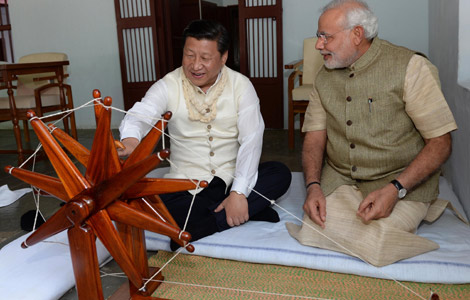
 Benefit of teaming up goes beyond borders
Benefit of teaming up goes beyond borders
 Beijing center hosts art exhibition inspired by LA
Beijing center hosts art exhibition inspired by LA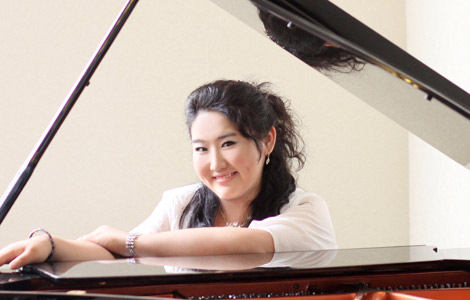
 Young pianist joins an elite roster
Young pianist joins an elite roster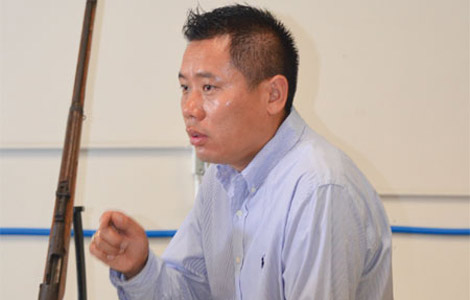
 WWII relics put on display
WWII relics put on display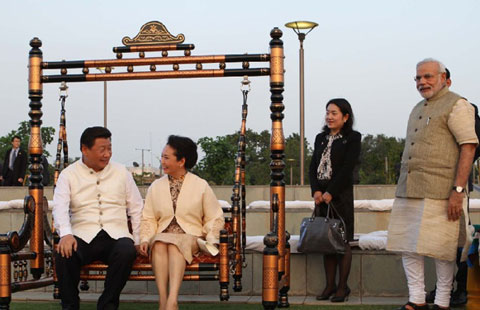
 President Xi and wife play swing in Modi's home state
President Xi and wife play swing in Modi's home state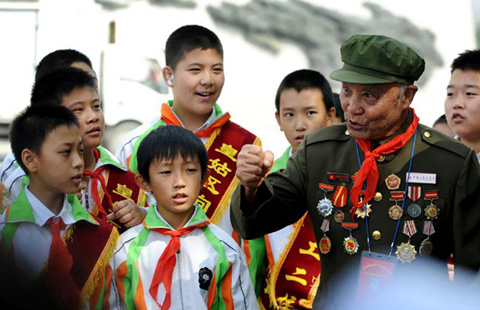
 9.18 Incident marked in China
9.18 Incident marked in China
 PLA's 'Gold Helmet' air battle contest takes off
PLA's 'Gold Helmet' air battle contest takes off
 China's first Hermes Maison opening in Shanghai
China's first Hermes Maison opening in Shanghai
Most Viewed
Editor's Picks

|

|

|

|

|

|
Today's Top News
Chinese porcelain vase sets US auction record
Xi praises contributors to China-India friendship
Alibaba opens new e-commerce chapter
Scottish voters have rejected independence
Tennis star Li Na sends farewell to fans
Alibaba jumps more than 40% in trading debut
Chinese queue up for Apple iPhone 6
Alibaba Day
US Weekly

|

|







